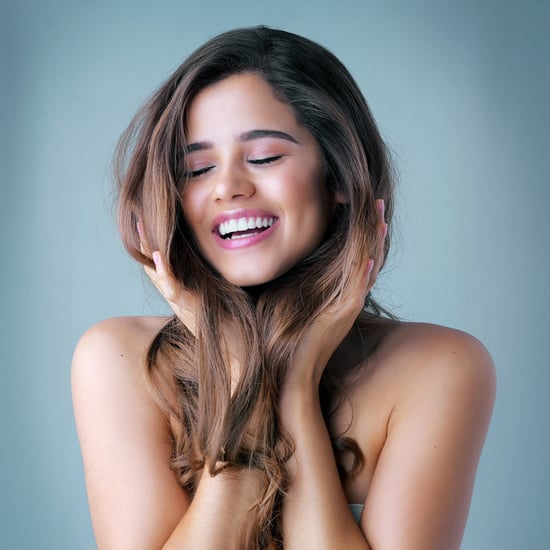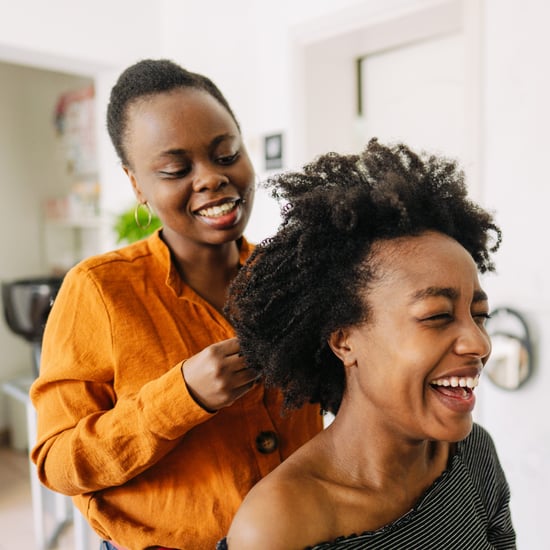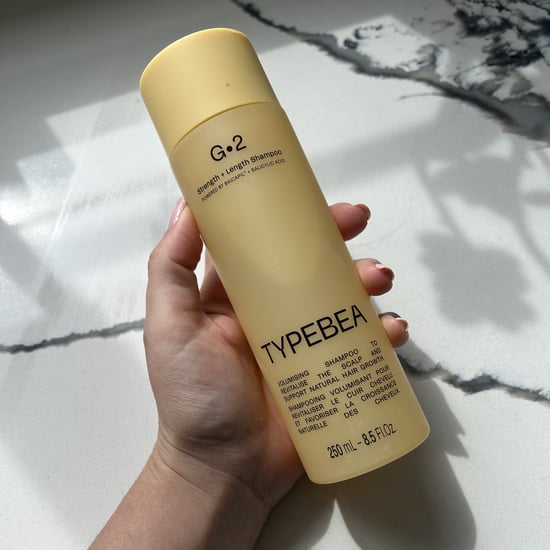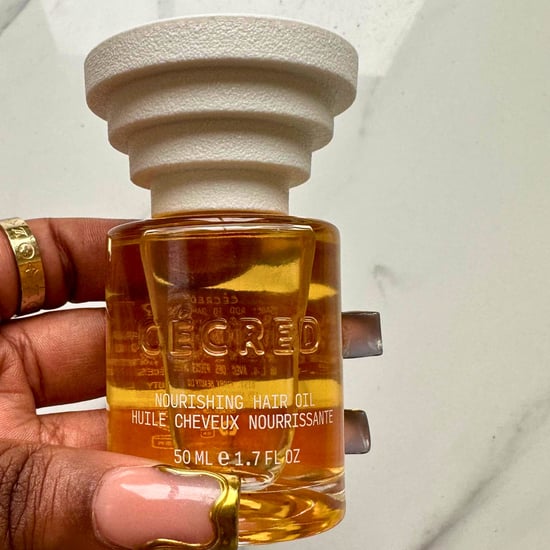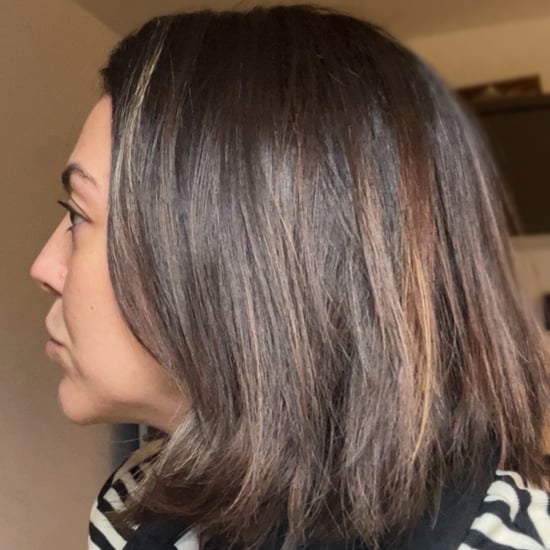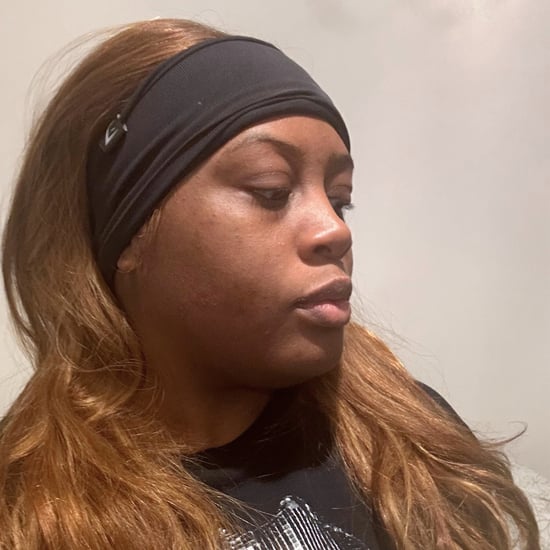The Fear of Black Hairstyling, Explained by a Professional
Why Do So Many Black People Approach Hairstyling From a Place of Fear?
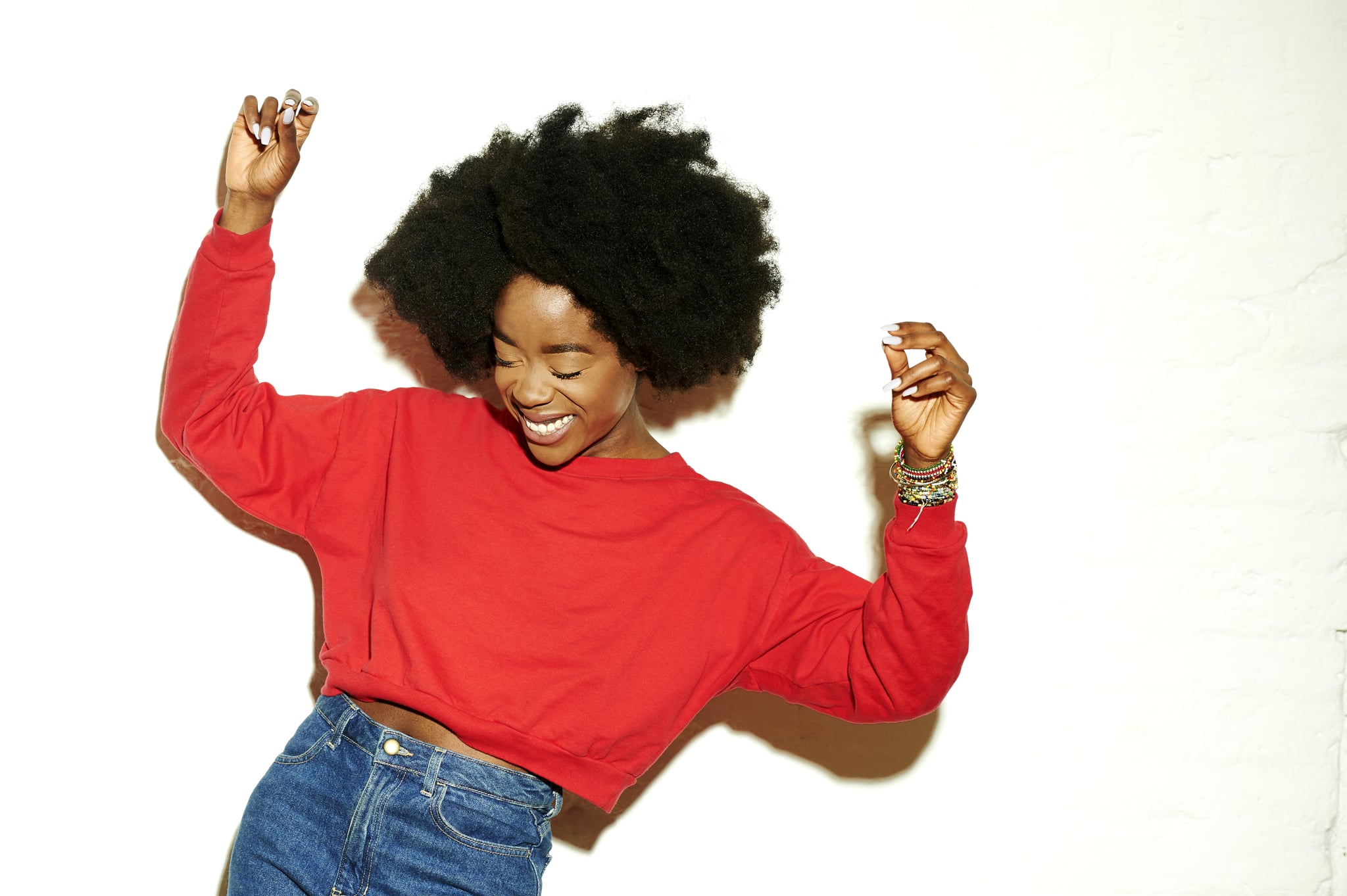
Image Source: Getty/Plume Creative
A few weeks ago, influencer @sincerelyoghosa went viral on Tiktok for her video showing how exasperated she was by the scrutiny many of her hairstyles face. In the video, she wrote: "Unpopular opinion: I no longer care about damageing my hair," and the caption reads: "Let it break 🤣." Throughout the clip she explains that she recently tried a few new hairstyles and numerous people were asking her if she wasn't afraid of her hair breaking with each one. Annoyed, she wondered if the fear of her hairstyles breaking her hair should cost her the freedom to experiment with a new look.
Oghosa's experience isn't an isolated one. In fact, the fear of hair breakage or damage is a very real concern in Black communities, and many people have grown up severely limiting the hairstyles and treatments that they receive because of this mindset. "Black hairstyling is approached from a place of fear because of a lack of Black hair education," Keka Heron, a professional hair and makeup artist, tells POPSUGAR. "Black hairstyling has only been taught in cosmetology textbooks within the last five years. If the professionals don't learn how to work with Black hair, how can they teach clients or educate others?"
The dearth of Afro-hair education in cosmetology schools point to a larger issue: Black hair discrimination. "So many women of colour feel that they have to wear straight extensions and straight hairstyles in order to be successful, particularly in corporate environments," Heron says. "We've been taught not to be seen as different or to stand out in any way. I have heard stories of professionals in the '70s and '80s who wore dreads and Afros and had to cut them off in order to enter the 'professional' sector." There are also societal implications that come with different Black hairstyles, and discrimination like this still exists today. This prejudice still so deeply affects the Black community that it has prompted action like the creation of the CROWN Act, which is legislation that prohibits discrimination based on hair texture and protective hairstyles.
Even further, the obsession with long hair and retaining length when styling also comes from forcibly imposed Eurocentric beauty standards. "The obsession to length has to do with long hair being looked at as beautiful," Heron says. "Hair looking more like that of white/caucasian people is still predominantly thought of as more beautiful." Thankfully, the rise of the natural hair movement has combated some of these beliefs. "The natural-hair movement has given people of colour the ability to say, 'Yes, we all have different hair types and textures, but different shouldn't be a negative thing,'" Heron says. "The movement has allowed people to embrace who [they] are."
At the end of the day, how you style your hair is a personal choice — one that should be left up to you alone. "Hair is individualistic, and the styles that you create can change daily," Heron says. "Making other people comfortable with your hairstyles should not be necessary." So whether you are a part of the natural-hair community, have a relaxer, or prefer protective styles like braids or wigs, approach hair care and styling from a place of abundance, not fear. Black hair is so extremely versatile that limiting your styling options due to the fear of breakage may not only have you feeling as exasperated as Oghosa, but also feeling trapped by the hair that grows out of your own head. Enjoy your hairstyles — whatever styles those may be — and if you have any concerns at all, find a licensed hairstylist that is well-versed in Black hair care to tell you everything you need to know about the health of your hair. Most importantly? Have fun. The best part about Afro hair is its versatility, so do not ever be ashamed of the magic that your hair can do.
